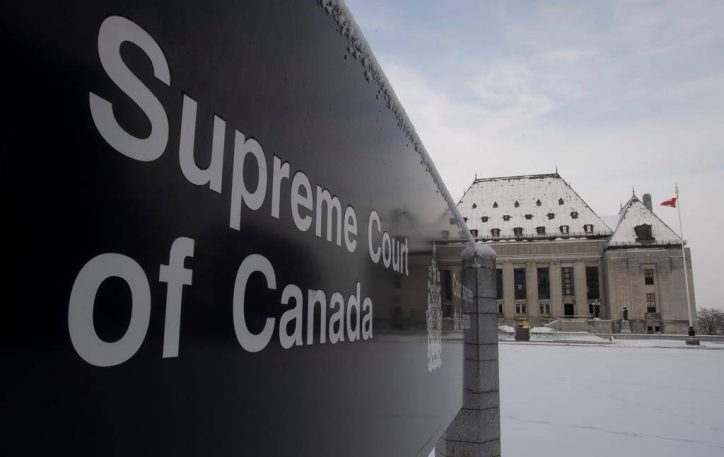The Supreme Court of Canada has postponed Saskatchewan’s constitutional challenge on the federal carbon tax for a second time to prevent the spread of COVID-19.

The hearing, launched by Saskatchewan and Ontario and supported by other provinces, has been re-scheduled to Sept. 22. The hearing will be streamed online.
In May 2019, Saskatchewan’s highest court ruled that the federally-imposed carbon tax is constitutional.
Chief Justice Robert Richards wrote in the 155-page decision that establishing minimum national standards for a price on greenhouse gas emissions falls under federal jurisdiction.
He wrote that Ottawa has the power to impose its carbon tax under a section of the Constitution that states Parliament can pass laws in the name of peace, order and good government.
Saskatchewan had argued a carbon tax is unconstitutional because it’s not applied evenly across the country. It also said the tax erodes the sovereignty of provincial jurisdiction.
The province appealed the decision in the Supreme Court. The hearing was initially scheduled for mid-March, but it was adjourned due the health and safety measures taken in response to COVID-19.
The hearing was first postponed to June, but on Wednesday, the Supreme Court of Canada pushed the date further back.
Global News has reached out to Premier Scott Moe for comment.
Questions about COVID-19? Here are some things you need to know:
Health officials caution against all international travel. Returning travellers are legally obligated to self-isolate for 14 days, beginning March 26, in case they develop symptoms and to prevent spreading the virus to others. Some provinces and territories have also implemented additional recommendations or enforcement measures to ensure those returning to the area self-isolate.
Symptoms can include fever, cough and difficulty breathing — very similar to a cold or flu. Some people can develop a more severe illness. People most at risk of this include older adults and people with severe chronic medical conditions like heart, lung or kidney disease. If you develop symptoms, contact public health authorities.
To prevent the virus from spreading, experts recommend frequent handwashing and coughing into your sleeve. They also recommend minimizing contact with others, staying home as much as possible and maintaining a distance of two metres from other people if you go out.
For full COVID-19 coverage from Global News, click here.
— With files from Maham Abedi and The Canadian Press.



Comments